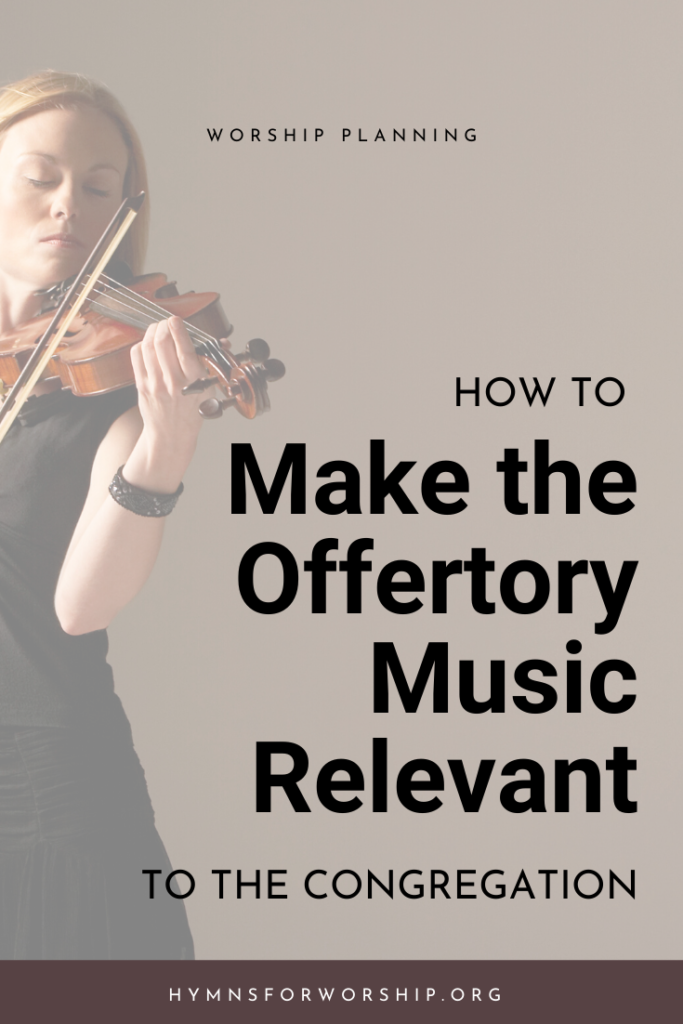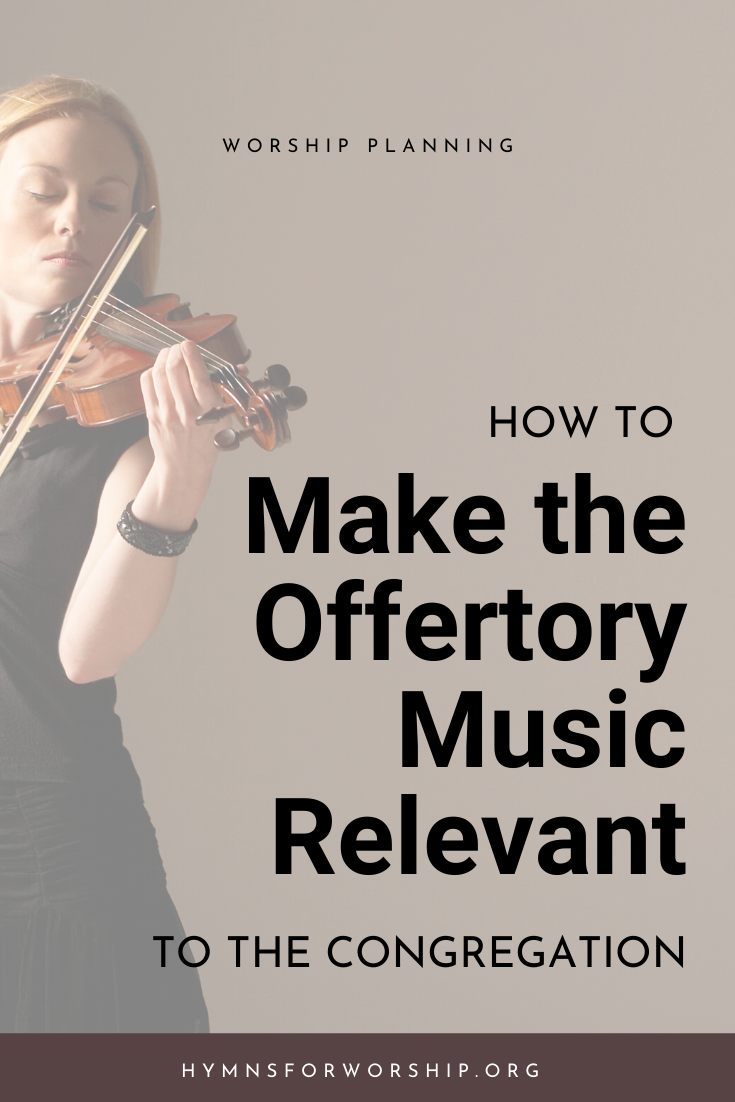The term “offertory” may seem obvious that it comes from the word offering and the act that something is being offered. This terminology often pops up in church liturgy, particularly in the Seventh-day Adventist church, when (mostly monetary) offerings are collected.

Tracing its roots though, we would find that the offertory in the worship service started early in the Catholic Mass tradition, when the bread and wine were lifted, or “elevated,” from the altar. According to Emily Brink, it was an occasion of mystery that musical compositions in lieu of that ceremony were either entitled “Offertory”, “Elevation,” “Adoration,” etc.
Hence, in the Protestant practice of giving financial offerings to the church, it symbolizes gratitude to God for what He has done for us, in general. While in the Catholic tradition, it is an offering of bread and wine to specifically symbolize Christ’s sacrifice and atonement for sin.
The Offertory Music
In the Seventh-day Adventist Church, the collection of the offering is usually accompanied by music. Why?
Most people believe that it is merely to fill what would otherwise be a silent gap. We cannot deny that most of the times, music functions as a filler for dead auditory space. The Calvin Synod noted this in the 1920s, that the organ should be played to “make silence less painful.” And the collection of the offering seems to be one of those moments.
On other occasions, the offertory music becomes a stage for musical performers to showcase their musical efforts. Thus forgetting that the music is supposed to induce the congregation to have a spirit of stewardship.
As a church musician or a music coordinator, it is our role to bridge a balance. To bring in skillfully executed music, yet accommodating (not entertaining) the congregation. The music should keep the minds in praise and gratitude to God. Not too bland that it perfectly becomes background music. And not self-serving either, where the musician steals God’s thunder.
The Musician’s Role in Helping the Congregation to Relate
This balance can be achieved in many ways. In playing the offertory music, the musician has a tremendous opportunity to aid the congregation in worship by doing the following:
Choice of repertoire.
Repertoire for offertory music can come in two forms. One in which the tune is based on a text that the congregation is familiar with. The next one is where the music is abstract and leaves room for the congregation to imagine.
A text-based repertoire can be a hymn arrangement or a chorale prelude. From the get-go, this is already advantageous. The mind is highly associative, and to play music with familiar texts almost automatically make the church members tune their minds to the song.
Abstract music needs more effort from the musician. While the mind is allowed to ponder and meditate according to how the music moves the heart, there still needs to be some sort of control. Some sort of ties to the loose ends. And the musician would need some kind of non-musical effort to make this a success, which brings us to our next point.
Use the aid of the projection or the bulletin.
Normally, after the worship leader announces the Scripture and the purpose for that particular offering, the musician plays in. A few spare seconds can be used by the instrumentalist to offer a few words before playing. But things can flow even more smoothly if the bulletin or projection is also used as a point of reference while the music is being played.
The musician should not leave this responsibility to the pastor, church bulletin personnel or even the audio-visual personnel of the church. All three can help, but the main message is coming from the musician, so to speak.
Musicians, take the time to write up a short paragraph about the message you want to convey and have it included in the weekly bulletin. If you are assigning someone else to play, take the time to coordinate with that person and the church bulletin personnel. Go the extra mile and have several inspirational quotes and Scriptures projected on the screen while playing. Do this judiciously as well. Do not just put together a hodge-podge of quotes and verses. Have a theme, and stick to it. Speaking of themes, don’t miss the next point either.
Coordinate with the pastor and/or the worship coordinator.
Many times, the musician exists in this bubble where he or she thinks independently. He /she chooses the music alone, not thinking of how the music can fit in the whole message of the worship service. It is easy to blame the song leader for choosing non-related hymns for the congregation to sing. But we are usually forgiving of the instrumentalist, who after all is just playing background music.
Make the music less coincidental and more meaningful and relevant by choosing music that relates to the theme. This can be done by properly communicating with the other church leaders ahead of time.
Don’t let your own performance be the very reason for the congregation to be distracted. @hymnsforworshipClick To TweetPlease practice.
A pastor can get by with a mispronounced word, or the worship leader might stumble over some details of the announcements. But a musician’s wrong notes can prove to be more distracting compared to other slips.
I’m not saying that a flawless performance is the only way to do it. That is the goal. However, as perfect as we want to do it, mistakes are inevitable. Practicing enables us to be more confident in playing. It also allows us to recover quickly from a mistake. But people know an honest impromptu mistake from a mistake caused by not practicing enough.
For whom is the offertory music performed?
On a personal note, whenever I play an offertory music, I think of it as my musical gift to God. Before I play, I would privately pray that He will accept the gift I am about to offer. Not that He can be appeased with music. But it is my way of preparing my heart as I give service to Him.
But the difference between that and playing music privately in the confines of a small space is obviously the presence of a congregation and the role the musician fills. The musician does not only have a sacred role to offer his own heart to God while playing but that the music he or she plays should induce the same spirit of gratitude, compassion, and generosity among the church members who hear him or her play.
In essence, while the music is played for God, it is played for the congregation as well. God may not need the explanation of the music for He can see right through the heart. But because it is also for the congregation, then the musician should seek ways to make the music their own.
Question: What other ways can you think of that will help the congregation to keep their minds fixed in worship while offertory music is being played? Join the conversation by commenting on the comment box below!
Like this article? Share it!

